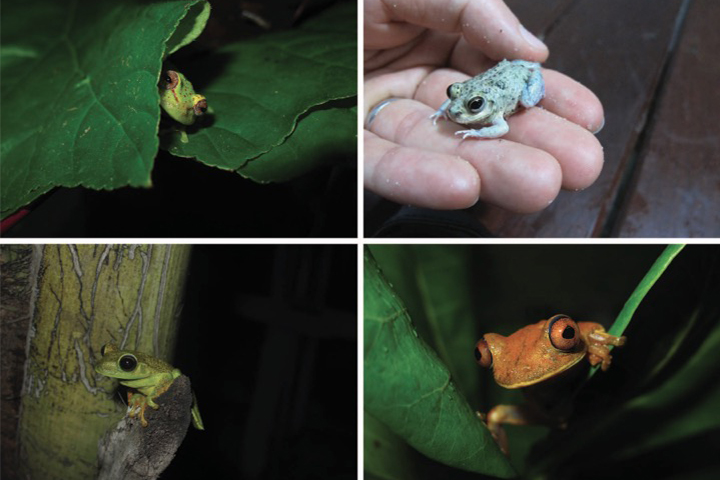Assessing the Threat of Exotic Disease to Atlantic Forest Frogs
Assessing the Threat of Exotic Disease to Atlantic Forest Frogs
Assessing the Threat of Exotic Disease to Atlantic Forest Frogs
Program: UM-Brazil Sustainability Cooperation Grants
All UM-Brazil Sustainability Cooperation Grants projects »

U-M Investigators
Timothy James - Ecology & Evolutionary Biology
Collaborators
Tamí Mott - Federal University of Algoas, Brazil
Felipe Toledo - University of Campinas
Project Summary
The Brazilian Atlantic coastal forest biome is home to the greatest diversity of amphibians in the world, but many populations are threatened or endangered due to habitat loss and other anthropogenic factors. Recently, the emerging infectious disease, Batrachochytrium dendrobatidis (also known as Bd or the amphibian chytrid fungus), has been identified as a leading cause of amphibian population decline throughout North and South America. The UM-Brazil Sustainability Partnership provided funds for Michigan and Brazilian collaborators to expand their sampling area into the northern end of Brazil’s Atlantic Forest. This work involved the exchange of graduate students between U-M and Brazil, coordinated fieldwork, publications, and the exchange of ideas and techniques related to the study of amphibians and Bd.
This project received a $10,000 UM-Brazil Sustainability Cooperation Grant in 2013.